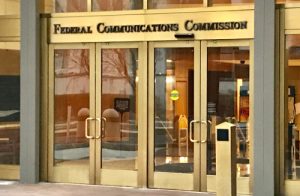
U.S. Sen. Marsha Blackburn (R-TN) joined a bipartisan group of her peers in requesting that the Federal Communications Commission (FCC) fix existing broadband access challenges in America’s rural areas before continuing the nationwide expansion of 5G wireless services.
“While 5G implementation is vital to our continued growth and prosperity, we must remain cognizant of the fact that 23 percent of rural Tennessee communities remain unserved or underserved,” Sen. Blackburn said on Jan. 9.
Sen. Blackburn joined U.S. Sens. Joe Manchin (D-WV), James Lankford (R-OK), Jon Tester (D-MT), and John Kennedy (R-LA) in signing a Jan. 9 letter sent to FCC Chairman Ajit Pai urging the FCC to take proper precautions to ensure that the 5G Fund realizes its potential without expanding the digital divide.
“We have some serious reservations about the recently announced 5G Fund and the decision to focus these limited mobile broadband deployment dollars on the promise of a 5G future when many places in our states still lack 4G service or do not have any service at all,” wrote the senators, referring to the chairman’s Dec. 4, 2019 announcement that he intends to establish the 5G Fund, which would replace the planned Mobility Fund Phase II that would have provided federal support for 4G LTE service in unserved areas.
Specifically, the 5G Fund would make up to $9 billion in Universal Service Fund support available to carriers to deploy advanced 5G mobile wireless services in rural America, according to the FCC, and also would set aside at least $1 billion specifically for deployments facilitating precision agriculture needs.
“The divide is even greater for the rural Americans we represent, some of whom still lack the 4G LTE service,” the senators wrote. “By refocusing funding toward 5G, not only will our states have to compete with our more urban, more profitable neighbors, we are also at a major systemic disadvantage because of the additional hurdles 5G presents for rural deployment.”
The senators noted that if the nation stands any chance of connecting rural Americans, “the FCC needs a more accurate method of data collection, a strong challenge process, and a funding process that includes terrain factors to ensure that the hardest to serve places can compete for limited funding,” according to their letter.



